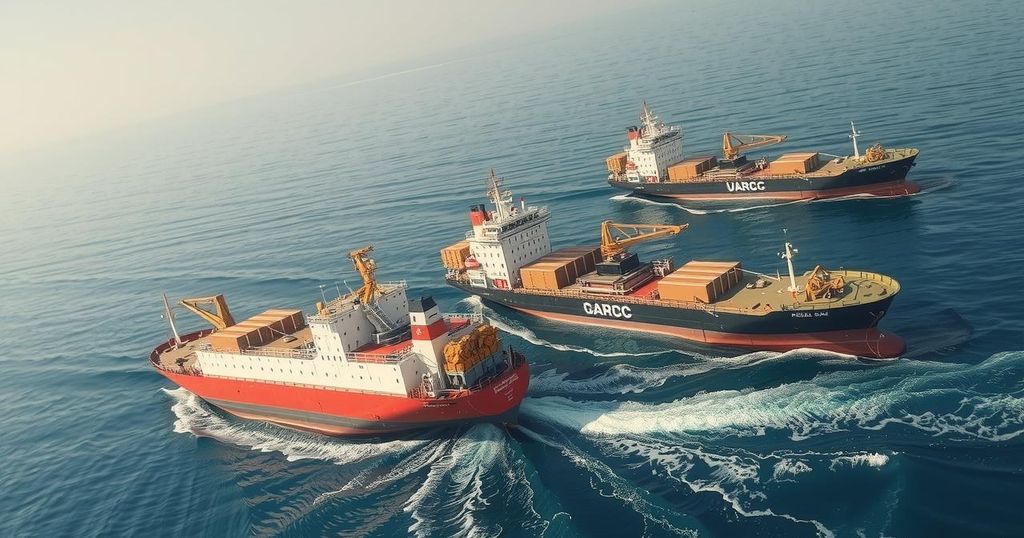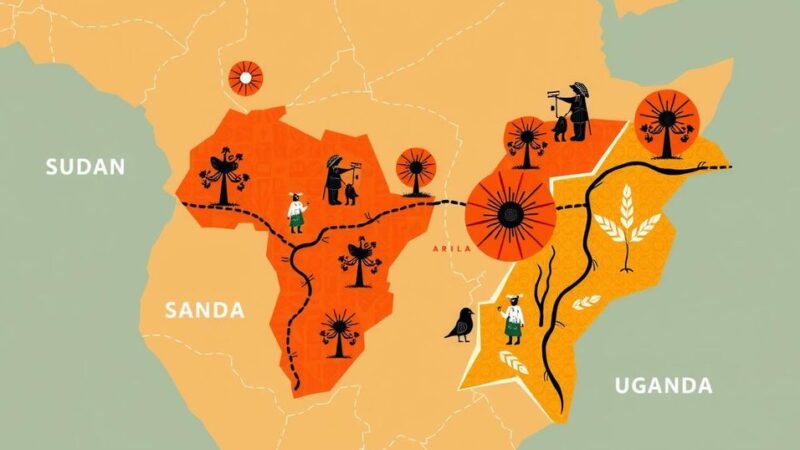Turkey and Qatar are sending two power ships to Syria to augment electricity supply in light of eased U.S. sanctions following the ousting of President Bashar al-Assad. The ships aim to generate 800 megawatts, which would significantly increase Syria’s power generation capacity. The situation marks a pivotal moment amid ongoing discussions regarding the lifting of sanctions and the potential impact on Syrian refugees.
Syria’s electricity sector is set to receive a significant boost as two power ships from Turkey and Qatar are en route to enhance the country’s power supply. This initiative follows the easing of sanctions by the United States after the recent fall of President Bashar al-Assad, which has compounded the ongoing infrastructure challenges in Syria. Khaled Abu Dayy, the head of the national electricity company, confirmed this development and noted that these ships are expected to generate 800 megawatts of electricity, thereby doubling the current production. The exact docking location remains unspecified but efforts are underway to establish power lines for distribution.
In recent months, Assad’s regime has faced intensified challenges following the ousting of the long-time leader by Islamist-led rebels. The U.S. government recently announced a six-month allowance for fuel and electricity donations to Syria, targeting improvement of essential services that have suffered vastly due to more than 13 years of civil war. With the civil conflict having devastated critical infrastructure, significant power outages are frequent, lasting up to 20 hours per day.
This growing partnership with Turkey and Qatar marks a thaw in relations, as both nations previously supported opposition groups against Assad. Both Turkey and Qatar have since reopened diplomatic missions in Damascus, indicating a shift in regional dynamics. Additionally, it is noteworthy that Turkey hosts millions of Syrian refugees who are now contemplating potential return following these developments. Although the transitional government is advocating for the lifting of sanctions, the international community, including the United States, remains cautious, seeking to assess the newly established authority’s governance before making any decisions.
The Syrian civil war, spanning over a decade, has caused extensive damage to the country’s infrastructure, notably within the energy sector. Prior sanctions imposed by the United States and other international entities severely limited Syria’s access to essential resources, exacerbating the already dire situation. Following the fall of Bashar al-Assad, recent policy changes from the U.S. to allow aid and donations indicate a changing posture towards Syria. The involvement of neighboring countries, particularly Turkey and Qatar, also reflects a shift in geopolitical alliances amid the complex aftermath of the civil war. Diplomatic engagement has increased, raising hopes for both reconstruction and the repatriation of refugees.
In conclusion, the dispatch of power ships from Turkey and Qatar signifies a critical turning point for Syria’s devastated electricity supply amid changing geopolitical dynamics. With U.S. sanctions being eased, there is a concerted effort to restore essential services to the nation while navigating the complexities of post-Assad governance. The potential resurgence of investment and diplomatic relations could play a vital role in rebuilding the war-torn country, but the trajectory remains uncertain as the international community monitors the evolving situation closely.
Original Source: www.barrons.com






